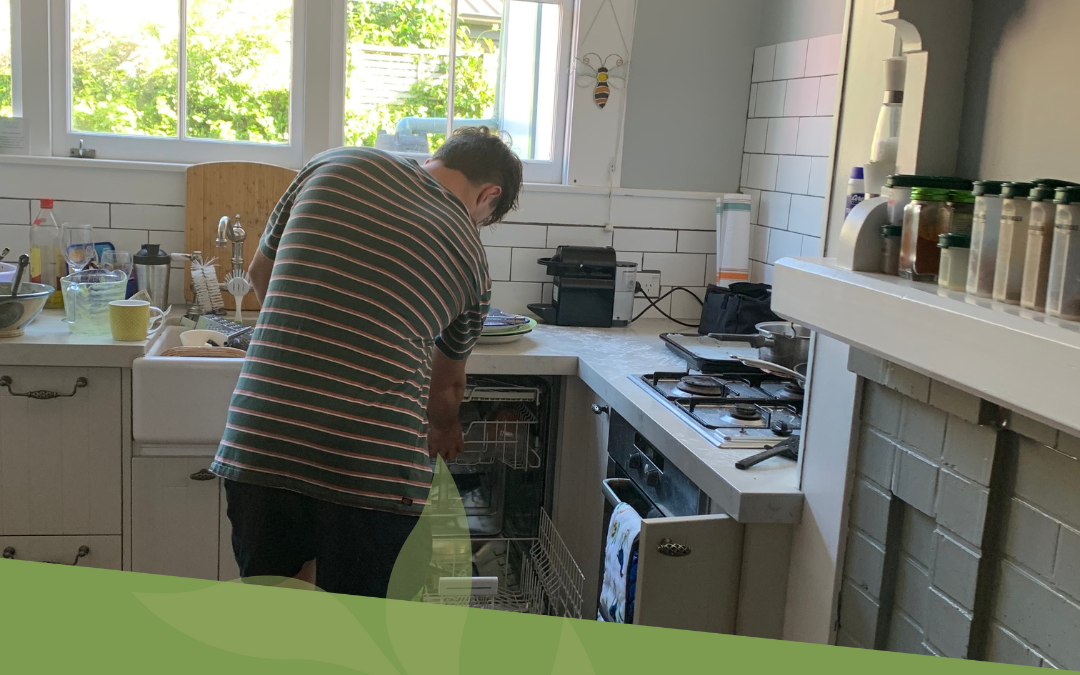Our emotions are in our tone
When we speak with others, it is our tone that clarifies and conveys meaning.
When we are parenting our adolescents, the meaning they receive from us may not be what we consciously intend! Because this meaning is interpreted by the receiver, our tone is incredibly important.
Our tone not only affects how people perceive us, it also affects their willingness to listen to us.
This information alone is gold when we’re parenting our young people.
A phrase as simple as “I don’t know” can be taken in a number of different ways depending on how we decide to express it. By changing our tone our adolescents may get several different messages:
- I don’t know and I wonder what you think.
- I don’t know and I don’t mind.
- I don’t know and I’m over it.
Three very different interpretations from one simple phrase.
Whatever the content of the things we say, it’s our tone that communicates what we’re feeling when we say them.
Our tone tells the truth.
And our young people know it.
We’re big, they’re small. We are an authority figure in their lives and they either don’t want to disappoint us … or … (being adolescents) they intentionally choose to disappoint us.
If I could watch a home movie I would be surprised to discover how irritated, negative, and just plain mean I could sometimes sound when I was talking to my kids. I remember the interactions but not any of the feelings I was projecting. If I came home to a messy bench, my kids would know EXACTLY how I felt about it, even if my words were carefully chosen to get them moving on the ‘problem.’
As a person I strive to be tolerant, optimistic, and kind and I would never intend to make my kids feel like they were lesser human beings than me, just because they’d left the kitchen in a mess.
Yet my tone would have been sending them that message.
Ironically, I wanted to teach them self responsibility, and my tone was teaching them I thought they were irresponsible.
It was my tone that was forcing us apart much more than my words.
The cause was me.
When we view our conversations through the lens of a movie we get opportunities for insight:
- What was our tone saying? We can say “I love you” in so many ways that create a reaction we don’t want. How often do we feel unfairly misunderstood when our kids quite rightly respond to our tone rather than our words?
- What tensions and attitudes did our tone create underneath the surface? When others respond to us negatively or in ways other than what we want or expect, rather than criticizing or attacking them, we might pause to reflect on how our tone (and therefore our underlying feelings of the moment) may have caused the reaction we received.
- What was my underlying mood? Many of us have difficulty observing our feelings when we’re in the middle of feeling them, especially if what we’re feeling is not what we want to be feeling or what we think we should be feeling.
Before we open our mouths, it’s worth pausing and breathing. Deep inhale, and an exhale that’s twice as long.
Acknowledge how we’re feeling before we open our mouths puts us back in a parenting role that gives us long term connection. In order to be an effective communicator we need to be working from a state of calmness and control. If we haven’t taken the time to acknowledge how we’re feeling we will be less confident in negotiating an outcome that works for us.
It only takes a few moments to say to our kids, “I’m feeling upset/angry/uncomfortable and I’d like to take a moment to get myself into a calm state.” With these words we get to create a space for ourselves AND we model this to our adolescents.
Our tone reflects what’s in our hearts. It is read and interpreted by our young people’s hearts.
These are our young people, the ones we care about more than anything in the world, and it makes sense we make an effort to get our tone right.
If you find yourself misunderstood or having altercations that quickly change from calm to chaotic in a matter of seconds, use this link to book a strategy call. Thirty minutes of one-to-one wisdom can be all it takes to start a ripple of change in your family.

